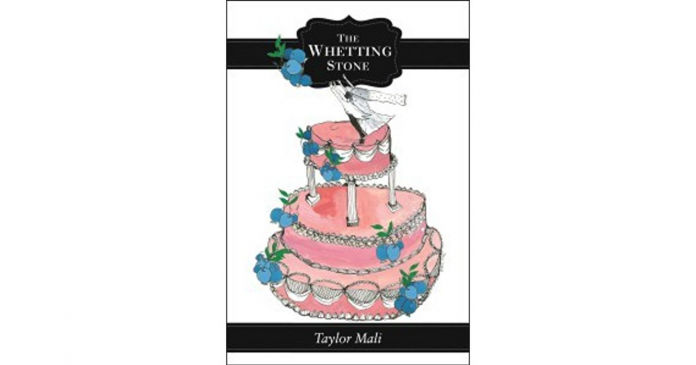Grief is a very hard thing to write about, mostly because it is so all-encompassing, and the kinds of grief that merit writing about usually don’t give themselves to good writing. Mostly because, I imagine, that when grieving over the preventable death of a loved one, there are no footholds on which to scaffold any kind of narrative. Taylor Mali’s The Whetting Stone is afflicted by this same problem, but it would be inaccurate to say that it suffers from it, mostly because the one thing it doesn’t do is sensationalize death.
Mali’s verse, first of all, is clean and patient throughout. This appears explicitly to readers to be a product of Mali’s grief, which always permeates the memories he’s chosen to explore throughout the collection. And while there’s not really a clear narrative that’s followed throughout the poems (either Mali’s forward movement after his wife’s death, or a chronology of the emotional trauma that befell him thereafter), there is a snapshot of contemplation on Mali’s part, which is meditative at worst, and therapeutic at best. This is of course as it relates to Mali’s own emotional conversation with his wife, which he attempts to carry out through poetry after-the-fact. If he is successful, it is not so much because of the vibrancy of his verse, but rather because for the most part, it is so pared back, and focuses so distinctly on concrete touchstone moments in his life, that it revels in honestly even when it fails to awake any fire in the readers themselves.
That said, throughout the collection, poems like “Making Ravioli,” “Twelfth Anniversary,” “Meeting at Monet’s Water Lilies,” and “News of My Divorce Reminds Me of Your Death,” which all address Mali’s late wife directly, give the collection a kind of spine around which to ebb and flow out of concreteness. So that when less-successful pieces like “Do Not Think of Suicide as the Ultimate Fuck You” fall flat, or fail to explore a sentiment in ways that have not already been exhausted previously in the collection, their failure is blunted by the otherwise vivid portrayal of Mali’s relationship with grief available throughout the collection.
Poetry, nowadays, has a tendency to be either written with only form in mind (which is to say, words are thrown together so that they look and sound like poems, with no real intention behind them), or with function and economy as their main focus (in cases of which a song is stripped of its verses). Mali’s The Whetting Stone is commendable above all for its patience in distilling an honest portrait of grief, which if at times suffers from simplicity, is made stronger by the very real impression that Mali is using language to document and explore his own vulnerability, and not exploit it.
In a minefield of contemporary poetics that has drawn a stark demarcation line between the accessible, marketable branch of poetry, and a branch of poetry that thrives in independent publishing houses and book-sellers but no further, Mali’s The Whetting Stone (although being a chapbook published by a small company itself) blends the patience and linguistic consideration of your English prof’s contemporary poetry examples with remarkable accessibility.
If nothing else, The Whetting Stone is a lucid tribute to a loved one lost, and a step of Mali’s towards healing.


